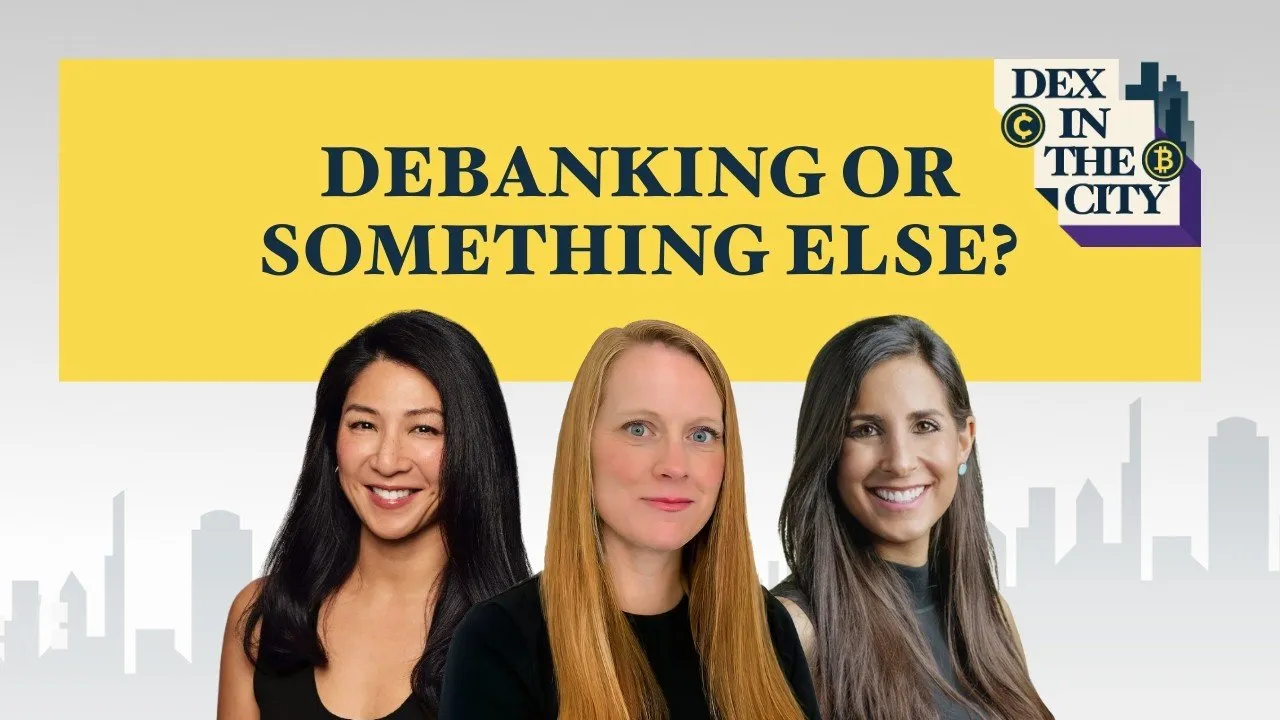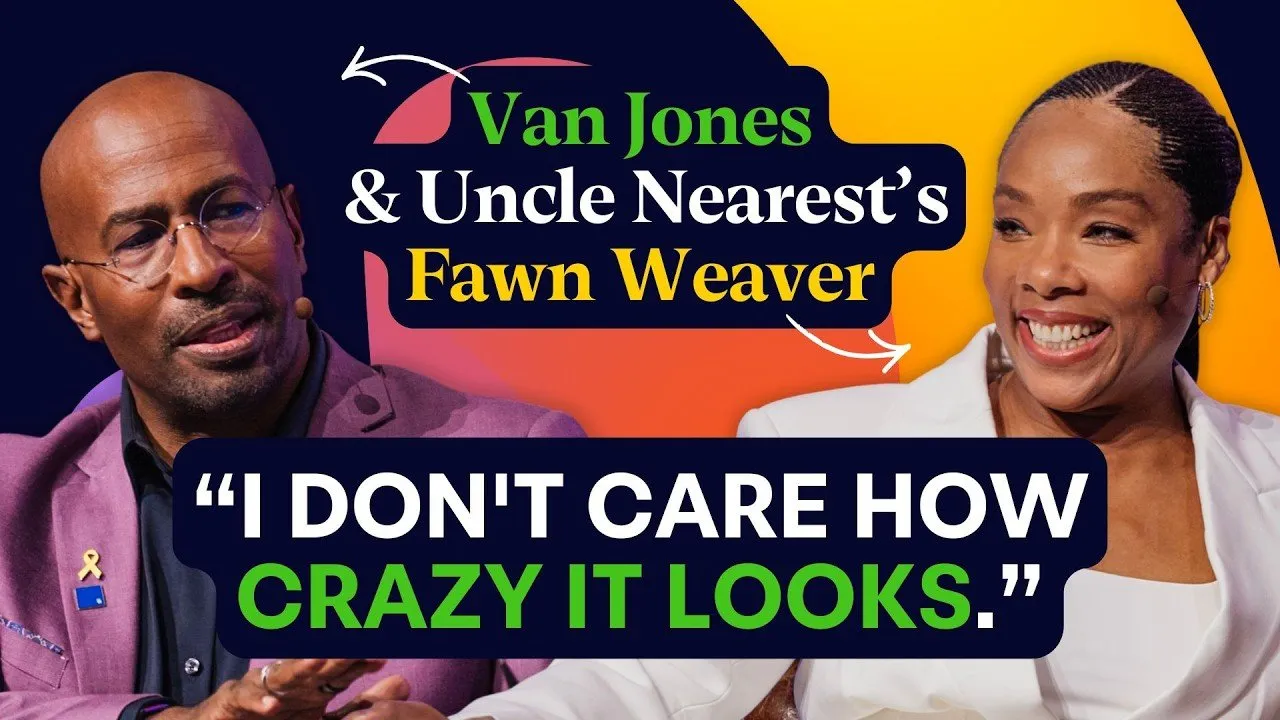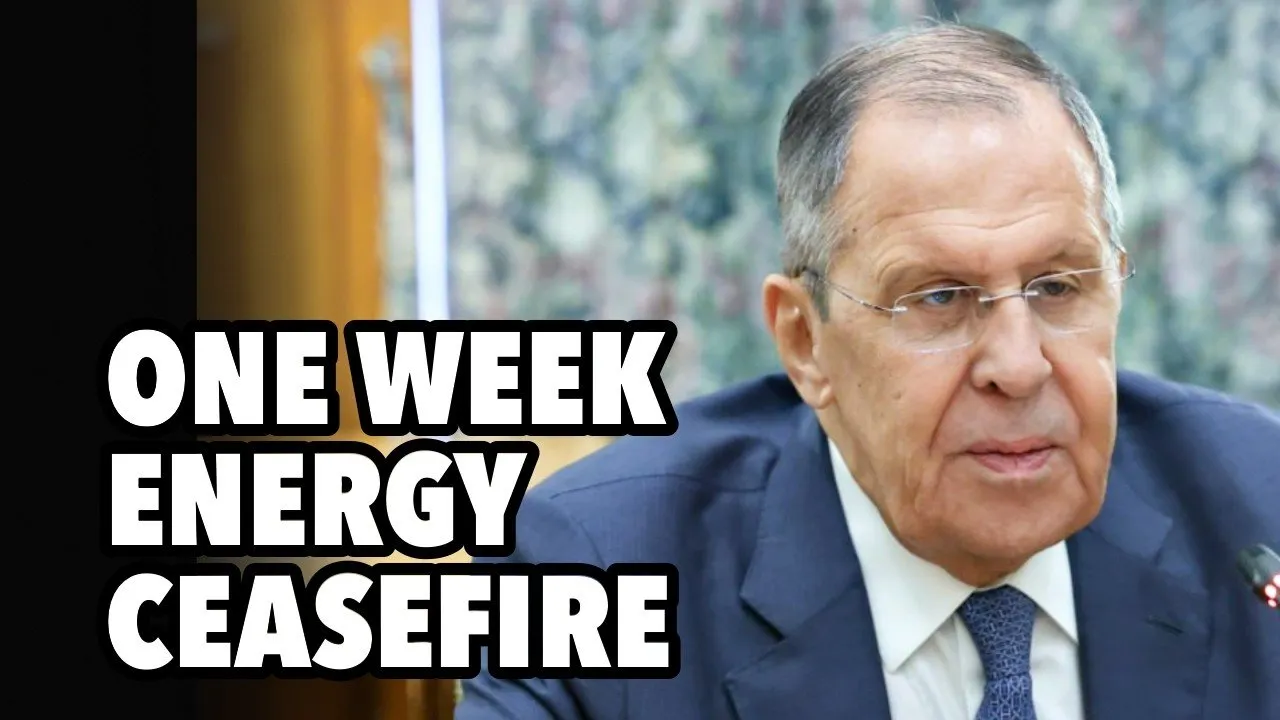Table of Contents
Professional prediction market traders explain how betting on everything from elections to wars creates new forms of information discovery, while revealing the insider trading risks, psychological pitfalls, and regulatory challenges facing this rapidly growing sector.
Veteran prediction market trader "Domer" and rising star "Ziebadger" discuss their strategies for profiting from political uncertainty, the social utility of betting on geopolitical events, and how AI and insider information are reshaping markets that now handle billions in volume on topics ranging from presidential elections to papal conclaves.
Key Takeaways
- Prediction markets have evolved from niche $10,000 "whale" bets to billions in volume, creating genuine price discovery on important events
- Professional traders rely on speed, curiosity, and superior news literacy rather than algorithmic trading, which hasn't yet succeeded in these markets
- Insider trading represents a growing threat as market size increases, with recent examples suggesting people with privileged information are exploiting unregulated crypto-based platforms
- The markets provide "advanced punditry with skin in the game" that rewards accuracy over entertainment, unlike traditional media commentary
- Trump's decision-making can be modeled through entertainment and reality TV frameworks, viewing policy as performance rather than systematic governance
- International politics often favor outside traders over locals due to reduced bias and better analytical distance from emotional investment
- Loss aversion remains the primary psychological barrier preventing amateur traders from success, with most unable to cut losses quickly
- Regulatory challenges around taxation and national security implications threaten the current unregulated structure of crypto-based prediction markets
Timeline Overview
- 00:00–18:30 — Prediction Market Mechanics: Explanation of how 0-100 probability markets work and their evolution from small niche betting to billion-dollar volume
- 18:31–35:45 — Professional Trading Strategies: Research methodology, speed requirements, and alpha generation techniques for competitive advantage
- 35:46–52:20 — Social Utility and Insider Trading: Debate over market value versus gambling, plus growing concerns about privileged information exploitation
- 52:21–68:55 — Trump Modeling and Political Analysis: Mental frameworks for understanding chaotic leadership and reality TV decision-making patterns
- 68:56–85:40 — International Markets and News Literacy: Trading foreign politics without local knowledge and distinguishing reliable from unreliable information sources
- 85:41–END — Psychology, Mistakes, and Future Challenges: Common trading errors, AI integration, and regulatory threats facing the industry
The Mechanics and Scale of Modern Prediction Markets
Domer's description of market evolution reveals both the democratizing potential and concerning aspects of prediction markets as they transition from niche hobby to mainstream financial instrument.
- His observation that former "$10,000 whale" bets now represent "little minnows" demonstrates genuine market maturation, though the comparison to traditional financial markets may overstate their current sophistication
- The expansion from two major markets (presidential elections and Oscars) to covering "many countries, tons of races, economic things" suggests healthy diversification while potentially spreading liquidity too thin across niche topics
- The claim of "eight figures betting on NYC mayor election" and "$200 million volume on Zelensky wearing a suit" illustrates how arbitrary events can generate substantial trading interest, raising questions about efficient resource allocation
- Market liquidity enabling "$6 million volume on Romanian mayoral election" indicates global participation but may reflect speculation rather than genuine information discovery among participants unfamiliar with local conditions
- The 0-100 probability structure provides intuitive pricing mechanisms while potentially oversimplifying complex multivariate outcomes that don't fit binary resolution criteria
- The emphasis on 24/7 trading creates advantages for global information processing but disadvantages individual traders relative to institutional participants with continuous coverage capabilities
However, the scale claims may be misleading when compared to traditional financial markets. While billions in prediction market volume sounds impressive, it represents a tiny fraction of daily forex or equity trading, suggesting these markets remain relatively niche despite growth rhetoric.
Information Arbitrage and Research Methodologies
The professional approach described by Domer reveals both sophisticated analytical methods and potential limitations in how prediction markets generate superior forecasts.
- His emphasis on curiosity and news consumption as core skills correctly identifies information processing advantages, though this may favor wealthy individuals with time for extensive research over working people with relevant expertise
- The papal conclave example demonstrates how historical research and pattern recognition can create temporary advantages, but also shows how infrequent events limit learning opportunities and skill development
- His observation that "everybody starts at the same starting gun" when new events emerge overstates equality of access, since some participants have superior research infrastructure, capital, and analytical tools
- The claim that even local participants may be "more biased" than distant observers contains truth about emotional investment effects while potentially undervaluing genuine local knowledge and cultural understanding
- The speed requirement evolution from "minutes to incorporate news" to "3 seconds or you're glacially slow" suggests increasing efficiency while creating barriers for casual participants without automated systems
- The description of reading foreign newspapers and using phone translation tools illustrates dedication while highlighting the amateur nature of much current research compared to institutional capabilities
The research methodology reveals a fundamental tension: as markets become more efficient, they may simultaneously become less accessible to ordinary participants with relevant knowledge but limited resources for rapid information processing and position management.
Social Utility Versus Speculative Entertainment
Domer's argument for prediction markets as "advanced punditry with skin in the game" contains both valid insights and questionable assumptions about their broader social value.
- His critique of traditional punditry lacking accountability correctly identifies incentive misalignment in media commentary, where entertainment value often trumps accuracy in determining career success
- The comparison to traditional punditry as providing "more advanced" analysis through financial incentives assumes money-motivated participants necessarily produce better forecasts than expertise-driven analysis
- His claim that prediction markets help assign probabilities to important events like recessions provides genuine value, though it's unclear whether crowd-sourced gambling produces more accurate estimates than expert surveys or econometric models
- The acknowledgment that "25% recession chance doesn't mean we have the answer" shows appropriate humility while potentially undermining the core value proposition of superior predictive accuracy
- The examples of betting on "aliens invading" and "Jesus returning" demonstrate how platforms include obviously frivolous content alongside serious geopolitical analysis, complicating claims about social utility
- The discussion of Zelensky clothing choices generating massive trading volume illustrates how trivial events can receive disproportionate attention compared to their actual importance
The social utility argument would be stronger with empirical evidence comparing prediction market accuracy to alternative forecasting methods across different domains, rather than theoretical arguments about incentive alignment.
Insider Trading and Market Manipulation Risks
The conversation reveals growing awareness of insider trading threats while potentially understating their systemic implications for market integrity and social utility claims.
- Domer's evolution from "99.9% of the time it's never an insider" to increased suspicion reflects genuine pattern recognition as markets grow, though his timeline may lag behind actual insider activity development
- The examples of "newly created accounts" betting $100,000 on Israeli military actions and immediately withdrawing profits demonstrate textbook insider trading behavior that would trigger regulatory investigation in traditional markets
- His comparison of potential prediction market profits to traditional espionage compensation correctly identifies how large liquid markets create new incentive structures for information monetization
- The acknowledgment that insider trading is "untraceable" due to crypto anonymity understates how blockchain analysis and pattern recognition could potentially identify suspicious activity with sufficient regulatory resources
- The discussion of French whale Trump betting and speculation about Elon Musk involvement illustrates how wealthy individuals could manipulate markets for political benefit rather than profit motives
- The lack of Know Your Customer (KYC) requirements enables both insider trading and market manipulation while protecting user privacy in politically sensitive contexts
The insider trading discussion reveals a fundamental contradiction: prediction markets claim social utility through superior information aggregation while operating in regulatory environments that enable information advantages unavailable to ordinary participants.
Modeling Political Chaos and Decision-Making
Domer's insights into Trump analysis reveal both sophisticated understanding of unconventional leadership patterns and potential limitations of entertainment-focused frameworks for governance prediction.
- His observation that Trump operates as "the star of a TV show" correctly identifies performance aspects of modern political leadership while potentially oversimplifying complex policy-making processes and institutional constraints
- The "casting for TV show" heuristic for personnel predictions demonstrates practical predictive value while reinforcing superficial aspects of governance over competence or ideological alignment
- His analysis of Trump's evolution between presidencies from "firing people all the time" to "weathering through" controversies shows adaptive learning while the sample size remains too small for reliable pattern recognition
- The comparison to "Elon Musk overpromise, underdeliver" framework provides useful analytical tools while potentially missing unique aspects of Trump's decision-making that don't fit Silicon Valley models
- The emphasis on chaos as beneficial for prediction market traders reveals potential conflicts between market participant interests and governance stability
- The reality TV framework may work for personnel and communication but could fail for complex policy areas like trade negotiations or military strategy where entertainment value conflicts with strategic objectives
The Trump modeling discussion illustrates both the value and limitations of behavioral analysis for political prediction, where accurate pattern recognition may not translate to understanding underlying causes or long-term trends.
International Market Dynamics and Information Asymmetries
The Romanian election example and broader discussion of international trading reveal complex dynamics around local knowledge, bias, and information processing that challenge simple assumptions about market efficiency.
- Ziebadger's account of Americans losing heavily on Romanian elections while Romanian bookmakers and citizens proved correct demonstrates clear limitations of outside analysis despite confident research approaches
- The pattern of American traders "analyzing towns in Romania" while locals understood deeper political dynamics illustrates how technical analysis may miss cultural and contextual factors invisible to outsiders
- The subsequent Polish election losses by the same participants suggest systematic overconfidence among international traders rather than isolated mistakes, indicating potential cognitive biases in cross-cultural political analysis
- Domer's preference for "chaotic countries" like Israel and Italy over "stable" ones like Canada reveals trader interests may not align with broader social welfare, where predictability generally benefits citizens more than volatility
- The description of subscribing to foreign newspapers and translating TV chyrons shows dedication while highlighting amateur research methods compared to institutional political analysis capabilities
- The acknowledgment that international participants often lack language skills and cultural context undermines claims about superior analytical distance compensating for reduced local knowledge
The international market examples suggest that while prediction markets may aggregate global information, they may also systematically favor confident but uninformed international speculation over local expertise, particularly when cultural and linguistic barriers limit outside understanding.
Psychological Patterns and Behavioral Economics
The discussion of trading psychology reveals both valuable insights about human behavior under uncertainty and potential limitations of applying gambling psychology to serious social prediction.
- The identification of loss aversion as the "number one mistake" correctly applies behavioral economics research while the solution of quickly cutting losses may not translate effectively from gambling contexts to political analysis where patience often matters
- Ziebadger's AI analysis revealing worst performance "in the 80% range" demonstrates sophisticated self-analysis tools while potentially showing how moderate confidence levels create the most dangerous overconfidence traps
- The weather trader making "$100,000" betting only at "97% and above" illustrates how boring but systematic approaches can succeed, though this may represent arbitrage of inefficient pricing rather than genuine predictive skill
- The description of traders using meditation and bankroll management techniques borrowed from poker shows professional development while potentially treating serious geopolitical events as gaming opportunities
- The emphasis on emotional detachment as necessary for success conflicts with the social utility argument that these markets help society understand important events, since optimal trading may require ignoring real-world consequences
- The discussion of "bonds" (betting on very unlikely events like alien invasion) reveals how significant portions of market activity involve entertainment rather than serious forecasting
The psychological analysis demonstrates both the sophistication of professional prediction market trading and potential concerns about applying gambling optimization techniques to analysis of war, elections, and other events with major human consequences.
Common Questions
Q: How accurate are prediction markets compared to polls or expert analysis?
A: While traders claim superior accuracy through financial incentives, empirical evidence comparing prediction markets to alternative forecasting methods across different domains remains limited.
Q: Do insider trading concerns undermine the social utility of prediction markets?
A: Growing evidence of insider trading in unregulated crypto markets does create systematic advantages for privileged participants that may compromise information aggregation claims.
Q: Can AI and algorithmic trading replace human traders in prediction markets?
A: Current attempts at automated trading have largely failed due to the qualitative, idiosyncratic nature of political and social events that resist quantitative modeling.
Q: How do prediction markets handle manipulation by wealthy individuals or political actors?
A: Current platforms provide limited protections against manipulation, though increasing liquidity makes large-scale price manipulation more expensive to sustain.
Q: What regulatory changes might affect prediction market growth?
A: Tax law changes affecting gambling deductions and potential national security regulations around sensitive topics could significantly impact market structure and participation.
The prediction market discussion reveals both genuine innovations in information aggregation and serious limitations that complicate claims about superior forecasting capability and social utility. While financial incentives may improve accuracy relative to traditional punditry in some contexts, the markets also enable new forms of manipulation and insider trading while potentially treating serious events as entertainment.
The professional trading approaches demonstrate sophisticated analytical methods while raising questions about whether optimization for trading profits aligns with broader social benefits from improved prediction. The speed and capital requirements for competitive trading may systematically exclude participants with relevant local knowledge but limited resources, potentially degrading rather than improving collective intelligence.
The regulatory vacuum enabling rapid market growth creates both innovation opportunities and systemic risks that traditional financial markets address through disclosure requirements, insider trading enforcement, and market manipulation prevention. As prediction markets grow in scale and influence, they will likely face pressure to adopt similar protections even if these reduce some of the current advantages for professional traders.
Practical Implications
- For market participants: Understand that professional trading advantages may limit opportunities for casual participants, despite claims about information democratization
- For policymakers: Consider how prediction market regulation might balance innovation benefits with insider trading prevention and market manipulation concerns
- For researchers: Develop empirical frameworks for comparing prediction market accuracy to alternative forecasting methods across different domains and time horizons
- For news consumers: Recognize that prediction market prices reflect trader incentives and available capital rather than objective probability assessments of future events
- For institutional investors: Evaluate whether prediction market information provides genuine alpha or simply reflects existing public information processed through different incentive structures
- For technology platforms: Consider implementing identity verification and transaction monitoring to prevent insider trading while preserving legitimate privacy interests
- For journalists: Develop frameworks for interpreting prediction market signals that account for potential manipulation, insider trading, and selection effects in market participation
The future of prediction markets will likely depend on resolving tensions between innovation and regulation, entertainment and serious analysis, and global information aggregation versus local expertise, while addressing legitimate concerns about market integrity and social utility claims.





